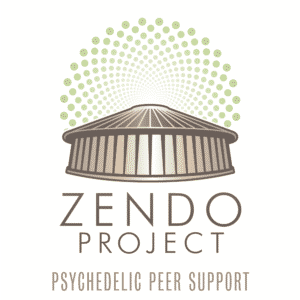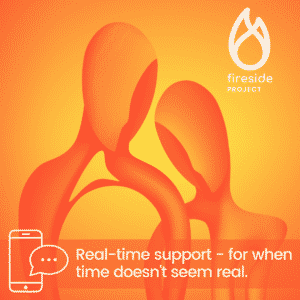
Set and Setting: What’s The Meaning Of These Psychedelics Terms?
If you have spent any time researching psychedelics, you will have come across the terms “set and setting”. This is your chance to learn the meaning behind the terms.
Where The Terms “Set and Setting” Come From
According to the book “How to Change your Mind” by Michael Pollan, the concept of set and setting was observed by the “Johnny Appleseed of LSD” Al Hubbard during his visit with psilocybin mushrooms ceremonies in Mexico, and the term was used as early as 1958 by biologist Ludwig von Bertalanffy. However the term was popularized by psychedelic researcher and psychologist Timothy Leary in his 1964 guide “The Psychedelic Experience: A Manual Based on The Tibetan Book of the Dead.” Though psychedelics are considered non-toxic and not physically addictive, this does not mean there are no risks whatsoever. As a psychedelic trip can be very intense depending on the dosage, many psychedelic researchers and advocates place emphasis on cultivating a set and setting that is conducive to having a beneficial experience.
It is also for this reason that Frshminds encourages those interested in trying psychedelics to consult a psychedelic integration therapist beforehand to determine which approach to healing is best for you, as each individual is unique and a personalized approach to psychedelic healing may be necessary. You can find a psychedelic therapist in your area from our listing on Frshminds.
Set
The concept of set, shortened from mindset, is a bit more complicated. It refers to the mindset or mental state that an individual brings to the experience. Leary distinguished this into two subcategories – long-term and immediate. Long term set is your personality and general world view that has developed throughout your life, your upbringing, culture, fears, passions, conflicts, and beliefs. Immediate set is more so related to the expectations and attitudes you go into the experience with, and is critical for how a psychedelic experience can unfold. While one cannot just change their long-term set so easily, there are things that can be done to ensure a good immediate set is cultivated before the trip.
Grounding
Grounding is a technique where you focus your attention on connecting to your body and physical surroundings. Though this can be achieved anywhere, studies do suggest that grounding to the earth outside (also known as “earthing”) possesses health benefits. This technique is simple, you plant your feet (or your entire body) to the ground and take deep, conscious breaths. Grounding is especially useful if you feel yourself entering an anxious mental state, as it can bring yourself back to the present moment.
Surrender

Surrendering to the experience is of particular importance, and releasing any preconceived notions. During a psychedelic experience, some things may arise that are unexpected, and fighting against them may only result in what is known as “thought-loops”. Thought loops are defined as the experience of becoming trapped within a chain of thoughts, actions and emotions which repeats itself over and over again in a cyclic loop. This can result in increasing anxiety. With surrendering to whatever arises, the experience is more likely to unfold in a way where one does not feel trapped or constrained by their inner world. Surrendering can extend to physical movements as well, according to the MAPS manual for navigating challenging psychedelic experiences. The change in movement, whether it be dancing, shaking, or simply walking to another destination can allow for the experience to feel more natural. As long as these actions do not pose harm to you or another individual, you should allow yourself to do what comes naturally no matter how “silly” it may seem. In sum, go with the flow, and approach anything that arises with an open sense of curiosity and non-judgement.
Intention
Having an intention for the experience can allow you to reap the benefits. Though this may seem counterintuitive from the act of surrendering, an intention is different than having preconceived notions of the experience. Intentions can range from addressing a certain issue you are having in your life to a more general intention of exploring the altered landscape. If your intention is in the form of a question, it is helpful to be specific in your question. Intentions can be anchoring if the experience becomes overwhelming, as it can bring you back to why you originally decided to trip in the first place. It’s recommended that if you have an intention as a specific question to make notes of any answers that arise, without going into too much thought or detail. Expanding upon these answers can be done after the experience with the help of a psychedelic integration therapist.
Setting
The concept of setting is pretty self explanatory. It refers to the physical environment in which the psychedelic experience takes place. This may be a clinical setting, your bedroom, a ceremony/retreat or a music festival. Aspects of the physical environment can enhance the experience, such as pillows, blankets, candles, art, and even non-physical aspects such as music. In most therapeutic settings, patients will be lying down, given blindfolds and headphones with a playlist of world music in order to bring the journey to an inward state. However, some individuals, such as mycologist Paul Stamets, are advocates for less clinical settings such as outdoors in nature where the person can engage and connect with their surroundings. Setting also extends to the social environment. For some, a crowded music festival is a walk in the park, however for others this sounds like a nightmare. If you are a first time tripper, it is recommended to cultivate a more intimate environment that is quiet, warm, and cozy, and not go solo.
Trip Sitter
A trip sitter is an individual who knows the psychedelic experience well, and can help support you through any difficult feelings that arise. Ideally, this individual is a trained psychedelic therapist or a shaman. However, a close friend who has tripped before and allows room for any possible uncomfortable arisings is better than no one at all. Luckily, there are also resources and communities that offer support to those undergoing challenging experiences so that they can be shifted into more transformative experiences, such as The Zendo Project or The Fireside Project.
Though still only available in the US, The Fireside Project offers free, confidential emotional support by phone and text message to help people minimize the risks and fulfill the potential of their psychedelic experiences in ways such as providing compassionate, accessible, and culturally responsive peer support, educating the public, and furthering psychedelic research, while embracing practices that increase equity, power sharing, and belonging within the psychedelic movement.
Integration
Even with a beneficial psychedelic experience, many experts encourage that integration of the experience post-trip is perhaps more vital than the trip itself. It can be said that psychedelics can show you a path, but it is still up to the individual to walk this path and take what they have learned from the trip and apply it to their daily life. This does not mean to continuously take psychedelics, as Alan Watts, well-known English writer and speaker who interpreted and popularized Buddhism, Taoism, and Hinduism for Western audiences, said in his famous quote “If you get the message, hang up the phone. For psychedelic drugs are simply instruments, like microscopes, telescopes, and telephones. The biologist does not sit with eye permanently glued to the microscope, he goes away and works on what he has seen.” Integration can be aided by a psychedelic integration therapist, which you can find from our listing on Frshminds, and they can guide you in practices that can aid in personal and spiritual development following a psychedelic trip. These include mindfulness meditation, journaling, and body or energy work.
Explore how set and setting influence psychedelic experiences and their role in mental health with our Ultimate Psychedelics and Mental Wellness Guide.



Comments